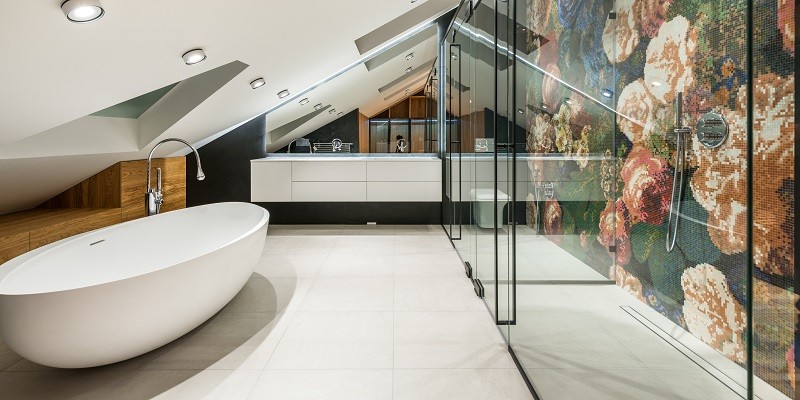Last Updated on February 3, 2023
There are many materials from which freestanding bathtubs are manufactured from. Each type of material has its own advantages and disadvantages as well as its own durability, quality, and appearance levels. Below, you will find a quick breakdown of the most commonly used materials for freestanding tubs!
*Acrylic
Highly mobile and easy to install, acrylic freestanding baths are a popular option for many homeowners. They come in many sizes as well as modern and traditional designs. Though somewhat prone to warping, acrylic is still a fairly durable material that’s non-porous. Unfortunately, acrylic does tend to thin out and wear away with time, but on a more positive note, it’s also fairly simple to repair the material.
*Cast Iron
Due to the extremely robust and heavy nature of cast iron, these tubs require reinforced flooring to accommodate them. Still to this day, cast iron freestanding bathtubs are manufactured using traditional methods. That means the molten iron is poured into a carefully shaped mold, and once cured, it is coated with porcelain enamel for durability. Thanks to this coating, these tubs are easy to clean and resist scratches and scuff marks. Unlike acrylic materials, cast iron is also ideal for retaining heat and makes these tubs perfect for soaking.
*Stone And Stone Mixes
You can also opt to bring more organic options into your bathroom by selecting stone as your choice material. Natural stone such as marble, granite or travertine provide the perfect options for freestanding tubs that look sleek but remain highly durable. These stylish black stone baths add a touch of elegance to any bathroom.
It’s also possible to find manufactured or cast stone options available. Though these materials are completely man-made, they still have the ability to retain the look of natural stone. However, this option opens the opportunity for you to indulge yourself in unique colors and design combinations.
Unlike natural stone, however, man-made stone isn’t nearly as durable. However, opting for stone resin tubs is a great way to strike the balance between the best of both worlds. Though slightly expensive, they’re worth splurging on thanks to their durable nature.
*Copper
Bathtubs made from copper are once again ideal for retaining heat, therefore, they’re perfectly relaxing for a warm soak. Additionally, copper is naturally resistant to bacterial growth and mold, which makes it the healthiest option on the market. Copper tubs are modern and truly luxurious offering a unique and artisanal approach to bathroom design.
*Stainless Steel
Many minimalist households may want to consider stainless steel due to its somewhat sterile but bold and sleek design. It offers a highly durable and solid construction that also lends itself well to enamel coatings for added aesthetic purposes. What’s more, steel is fairly easy on the maintenance and requires very limited upkeep which makes it easy to clean using common household agents. The downside to stainless steel tubs is that they tend to feel somewhat cold at first. However, once the material comes into contact with warm water, it does a fairly decent job of retaining warm temperatures.

